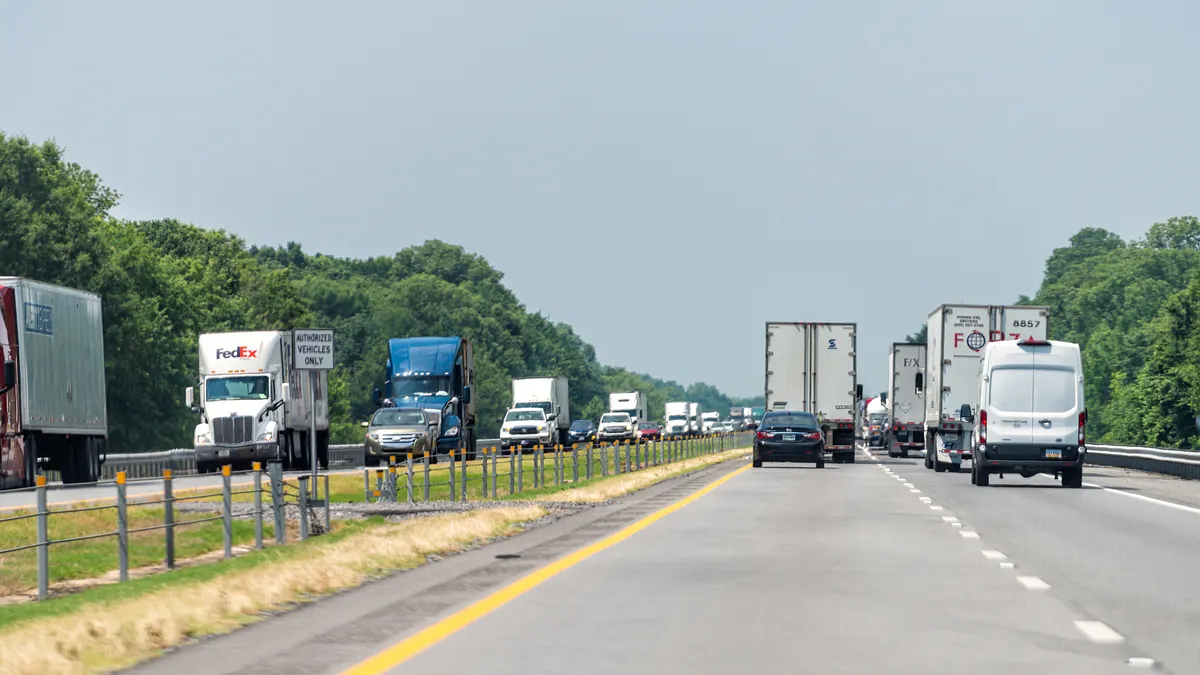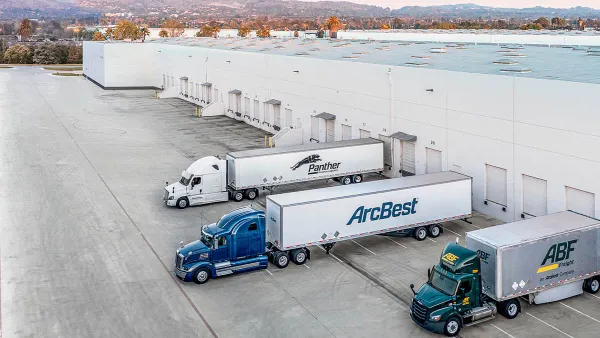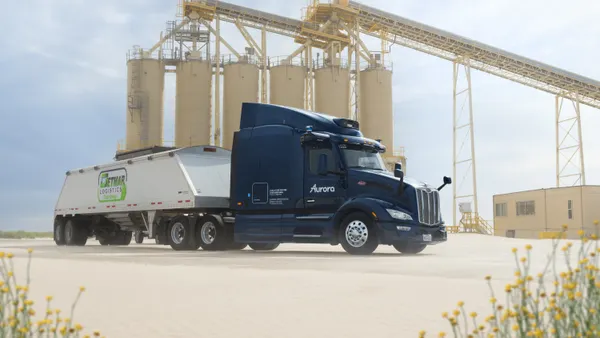The pandemic has accelerated technology adoption through necessity. Social-distancing measures meant trucking companies needed solutions for some aspects of daily operations. The industry tackled head on one of the most basic parts of any job: paperwork.
"Our personnel — including our driving force, dock workers and those in shipping offices — had an uncertainty about passing paperwork back and forth," said Robert Solimani, vice president of Stevens Transport, a company with 4,000 employees and 2,500 reefers. "Multiple facilities banned drivers from shipping offices or didn’t allow them to get out of their truck."
Shippers left paperwork in the back of trailers after loading or unloading, or they preferred emailing signed bills to the driver or carrier’s office.
The answer to the uncertainty of exchanging paperwork turned out to be electronic bills of lading Solimani said.
That’s why Transport Dive’s 2020 award for Technology of the Year goes to eBOLs.
Human interaction decreased
During the pandemic, a catalyst was needed to bring consistency across the industry so that all drivers used the same procedure. EBOLs solved the problem.
The technology first caught on with more dedicated and private supply chains, although the path eBOLs have taken to adoption in the industry is tricky to pinpoint, according to Brian Belcher, co-founder and COO at Vector, a transportation digitization and workflow solutions provider.
However, fragmentation presented business challenges, as some members of the supply chain still required "paper" work. When the shipper had more control of the lifecycle of the shipment, Belcher said, eBOLs were used.
Technology-forward laws also helped push forward eBOL adoption, such as the Government Paperwork Elimination Act and the ruling from the FMCSA that permits the use of electronic documents as long as they contain the needed details. "We can move faster now because government laws support digitization," said Belcher.
Besides eliminating human touch via paperwork, eBOLs serve as a container of information gathered at each change of "hands." Replacing paperwork with technology allows for gaining visibility and data throughout the entire shipment life cycle, said Belcher. Paperwork is not a great way to capture and share information such as overages, shortages and damages and detention.
"Not only do eBOLs limit exposure of human interaction from a safety perspective, they expedite a lot of the processes we have in the supply chain."

Robert Solimani
Vice President of Stevens Transport
Bringing the BOL onto a technological platform enables all parties to gain real time awareness of damages to a shipment. Nobody has to wait weeks to find that out, he said.
"Not only do eBOLs limit exposure of human interaction from a safety perspective," said Solimani, "they expedite a lot of the processes we have in the supply chain."
Those include shortening the time drivers spend at the receiving destination, potential cost savings from a detention standpoint by tracking arrival and departure times as they occur with eBOLs, he said. Invoicing from carriers can be accelerated as eBOLs send them at the time of unloading instead of waiting for a driver to scan them in at a truck stop.
They also eliminate a substantial amount of paperwork making the trucking industry more environmentally friendly, said Solimani.
Next steps for eBOLs
Solimani wants to see a global rollout and for eBOLs to become common practice at all facilities.
Belcher belongs to the Contactless Delivery (which includes pickup, too) Task Force, formed by the Consumer Brands Association. Belcher serves as its technology advisor. The task force, which Solimani and Stevens Transport supports, includes about 29 of the largest consumer-packaged-goods shippers and receivers, along with Accenture, Coyote Logistics and Vector.
The task force was first named the "eBOL Task Force," but the members saw fit to make the change to Contactless Delivery, said Belcher. "Drivers still get out of their trucks for other reasons than the bill of lading."
The touchless BOL got the ball rolling. The task force is targeting Q1 2021 for the nonprofit GS1 to certify its standard concerning drivers avoiding contact with people during loading and unloading or in between.


 Read more
Read more






